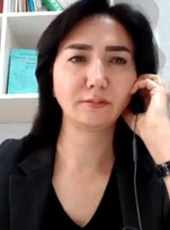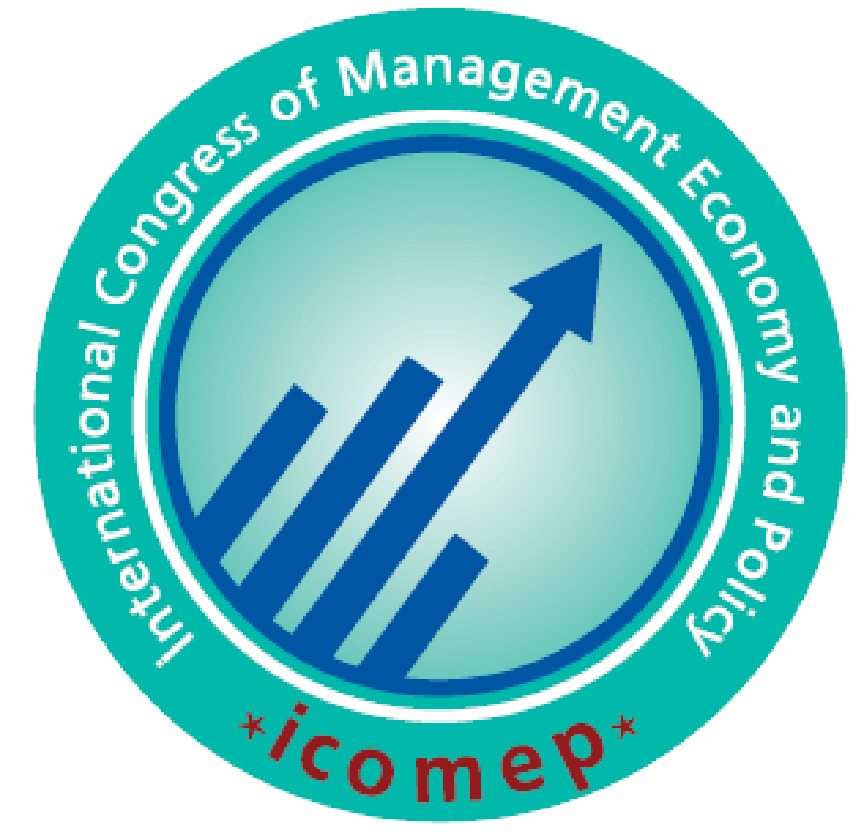Prof. Dr. Gary Campbell
Michigan Technological University, College of Business

Prof. Dr. Rui Alexandre Castanho
WSB University, Poland
Madeira University Portugal

Assoc. Prof. Vilmos Katona
Institute of Architecture, Faculty of Engineering and Information Technology, University of Pécs, Hungary
CV
…
Abstract for ICOMEP'22
Regeneration and social sustainability in global architecture after Covid-19
The regenerative agenda of Steven A. Moore theoretically facilitated architecture on a sustainable and social basis. Stemming partly from his tenets, many other design activities and professional symposia, e.g., the idea of the 2016 Venice Biennale by Alejandro Aravena, proved to serve regenerative purposes throughout the globe, yet Covid-19 means an unprecedented challenge. How does the pandemic affect social collaboration to develop new design tools for participatory architecture, and what are our possible prospects after the worldwide cataclysm? Can we benefit from online training, lockdown, and economic changes to give rise to environmental consciousness while preserving tectonic authenticity? Our study analyses global tendencies in comparison with the original tenets and early case studies of regenerative architecture.

Dr. Lukman Raimi
CV
Dr. Lukman Raimi holds a Ph.D. in Entrepreneurship & CSR from the Leicester Business
School, De Montfort University Leicester, United Kingdom (an accredited AACSB university)
with over 13 years of teaching, research, mentoring and consulting. Presently, he is an Assistant
Professor of Entrepreneurship in the School of Business and Economics (SBE), Universiti
Brunei Darussalam (UBD). Prior to joining the UBD, he was an Assistant Professor and the
Chair of Entrepreneurship at the American University of Nigeria (AUN). Additionally, he was
formerly the Coordinator of the Graduate Program in the School of Business & Entrepreneurship
and the Director Centre for Entrepreneurship in AUN. In addition, he was a former Coordinator
of Training and Part-Time Programme at the Centre for Entrepreneurship Development, Yaba
College of Technology, Nigeria. He is an entrepreneurship educator trained at the
Entrepreneurship Development Institute (EDI), Ahmedabad, India, under the World Bank-Step B
Project. He had specialized training in Enterprise Education for Employability (EEE) at the Pan-
Atlantic University Nigeria under the British Council’s sponsorship. He was an alumnus of the
Cumberland Lodge Residential Mentoring (2014), Windsor, United Kingdom. He attended 2019
Experiential Classroom XX organized for Entrepreneurship Educators at the University of
Tampa, Tampa, Florida, United States. He has attended/delivered conferences/seminar papers in
Turkey, Malaysia, Ghana, Togo, India, Belfast, Leicester, and the United States. His publications
are ranked and indexed Scopus and ABDC and Google Scholar. His research interests include
entrepreneurship: social entrepreneurship, entrepreneurial/digital innovation, medical
entrepreneurship, development economics, CSR and sustainability, SDGs, and family business.
He is married with children.
His research philosophy is pragmatism – an amalgam interpretivism and positivism. Guided by
this hybrid philosophy, he conducts research using both qualitative and quantitative research
methods. Moreover, he has a strong research focus with a burning interest in contributing to a
supportive academic community. This is evident in the array of academic publications listed in
my resume. This multidisciplinary focus has enabled him to collaborate with academics and
professionals to further disseminate knowledge and practice in the field of entrepreneurship,
CSR and development studies.
Abstract for ICOMEP'22
Understanding the motives, nature of uncertainty and strategies of transitional entrepreneurs in developed countries: a focus on ethnic minorities, immigrants, and women entrepreneurs
Purpose – Transitional entrepreneurs have continued to make significant contributions to the
ecosystems of developed countries such as the United States, Australia, Canada and the United
Kingdom. Unfortunately, the notion of transitional entrepreneurship (TE) among economically
distressed groups has not been well understood and investigated by researchers and
policymakers. The current study examines the motivational factors and the nature of uncertainty
strategies of transitional entrepreneurship among ethnic minorities, immigrants and women
entrepreneurs, drawing insights from an extensive literature review.
Design/Methodology/approach – To understand the dynamics of transitional entrepreneurship,
thematic review, a qualitative research tool, was used to analyse the research problem and
provide answers to the research questions. Seven (7) stages of the thematic review process were
followed in data gathering, review and reporting of findings. From over 130 publications
generated by the databases, a sample of 60 relevant publications that cover the themes of
investigation was selected, critically reviewed, evaluated and synthesised on the basis of which
integrated findings were reported.
Findings – Three insightful findings emerged from the thematic review. First, there are eight
motivational factors for TE venturing: combination factors such as racial discrimination/social
exclusion; harsh institutional and policy environment; need for achievement/quest for economic
affluence; opportunity structure/demand–supply gap; risk of unemployment/underemployment;
social networks and capabilities; social acceptance/business support in host countries; and
vocational abilities of transitional entrepreneurs. Second, three levels of uncertainty confront
transitional entrepreneurs depending on countries and institutional contexts, but the prevalent
level is uncertainty, which presents several alternate paths and trajectories with no clear future.
Third, transitional entrepreneurs leverage preemptive and adaptive entrepreneurship strategies to
cope with the ravages of uncertainties in their host communities.
Originality/Value – We bridge the gaps in the literature by providing interesting insights from
thematic review that explicates motivational factors for transitional entrepreneurship among
ethnic minorities, immigrants and women entrepreneurs. We also validate the applicability of
several theories of entrepreneurship venturing for explaining transitional entrepreneurship
motivation, uncertainty and strategies.

Cristina Raluca Gh. Popescu
1.) Department of Business Administration, Faculty of Business and Administration,
University of Bucharest, 030018 Bucharest, Romania
2.) Department of Economics and Economic Policy, Economics I Doctoral School, Faculty of
Theoretical and Applied Economics, The Bucharest University of Economic Studies, 010374
Bucharest, Romania
CV
Cristina Raluca Gh. Popescu is Full-Professor Habil. at University of Bucharest and PhD. Supervisor and
Doctoral School Member at The Bucharest University of Economic Studies, Romania. Having more than 21
years of experience, focuses on helping students learn and apply the subjects more effectively, and centers
on improving scientific research excellence. Values a special environment where her in-depth knowledge of
creative thinking and academic writing can help deliver accurate research results. She is skilled in Business
Administration, Economics, Management, Accounting, and Audit. She is Member of Chamber of Financial
Auditors of Romania (CAFR), Romania as Financial Auditor, and Member of Authority for the Public
Oversight of the Statutory Audit Activity (ASPAAS), Ministry of Public Finance, Romania as Financial auditor.
Single author and coauthor of more than 287 scientific works, with national and international publishers,
having national and international coauthors: books, book chapters, articles, conference papers. She has
more than 380 citations in national and international publications. Editor and Editorial Advisory Board (EAB)
member: IGI Global – Publishing House (Pennsylvania, USA). Guest Editor and Academic Editor for
Multidisciplinary Digital Publishing Institute (MDPI, Basel, Switzerland): Mathematics, Journal of Risk and
Financial Management (JRFM), Businesses. Topic Editor for Multidisciplinary Digital Publishing Institute
(MDPI, Basel, Switzerland): Mathematics, Businesses. Associate Editor for The International Academy of
Organizational Behavior Management (IAOBM): International Journal of the Academy of Organizational
Behavior Management (IJAOBM); The International Journal of Management Science and Information
Technology (IJMSIT). Editorial Advisory Board (EAB) Member for North American Institute of Science and
Information Technology (NAISIT) (The International Journal of Management Science and Information
Technology (IJMSIT)); Journal of Emerging Economies and Policy (JOEEP). Review Board member: IBIMA
Conferences and IBIMA Publishing, USA (Journal of E-Government Studies and Best Practices, The MENA
Journal of Business Case Studies); International Conference on Decision making for Small and Medium-
Sized Enterprises (DEMSME 2021); IGI Global – Publishing House (Pennsylvania, USA); University of
Bucharest (International Journal of Health Economics (IJHE)); Multidisciplinary Digital Publishing Institute
(MDPI, Basel, Switzerland) (Sustainability, Symmetry, Journal of Risk and Financial Management (JRFM),
Mathematics, Economies, Risks, Journal of Open Innovation: Technology, Market, and Complexity (JOItmC),
Journal of Administrative Sciences, World, Informatics, Water, Agriculture, Businesses, Microorganisms,
Energies, Agronomy). Invited reviewer: Management Decision (MD), Sustainable Development (SD),
Corporate Social Responsibility & Environmental Management (CSREM), Journal of Business Economics
and Management (JBEM), Engineering Economics (Inzinerine Ekonomika), International Journal of
Sustainable Development and Planning (IJSDP), Transformations in Business & Economics (TIBE).
Abstract for ICOMEP'22
Targeting Sustainable Development Goals (SDGs) as a result of COVID-19 Pandemic Shock:
Building Inclusive Global Knowledge Societies, while Enjoying Peace and Prosperity
Worldwide
Nowadays, promoting sustainability and sustainable development represents the very essence
of the post-pandemic economic recovery strategies, while facing the challenging perspective
of building inclusive global knowledge societies. This paper analyzes, on the one hand, the
current economic, financial, and social context that led to the need to create a new economic
model based on green energy, digitalization, and shock resistance and, on the other hand, the
measures required in order to facilitate the transition and the implementation of this new
economic model. In continuation, this study emphasizes the necessity of operating in stable
economies, especially as a result of the COVID-19 pandemic widespread global economic
impact which changed the dynamics of all activities and offered new perspectives for
countries all around the world.

Prof. Valentin Vasilev, PhD
Higher School of Security and Economics, Plovdiv, Bulgaria
Head of “Centre for Leadership and Public Policy”

Dr. Lalit Mohan Goyal
Department of Computer, Engineering, J. C. Bose
University of Science and, Technology, YMCA, Faridabad Haryana (State Government University)
CV
Education Qualifications/Achievement
Ph.D. (Computer Engineering) from Jamia Millia Islamia University, New Delhi in 2016.
M. Tech (IT) from IP University, Delhi in 2009 with distinction.
B.Tech. (Computer Engineering) in 2002 with Honors from Kurukshetra University, Kurukshetra.
GATE-2011, GATE-2019 Qualified.
Patent & Research Projects
Title: Creating a repository of equipment’s under ICAMR’s intramural program, Funding Agency- ICMR, New Delhi, Grant 2.42 Lakhs, Date of sanction: 01/03/2018 Date of Completion: 21/08/2018, Status: Completed.
Two Indian patent (Patent no. 361136 and 384612) and Four Australian patent Granted. Three Indian patents published (including one design patent) out of them FER of one has been justified.

Dr. Vesile Möhsümova
The Academy of Public Administration under the President of the Republic of Azerbaijan

Assoc. Prof. Dr. Hashim Zameer
College of Economics and Management, Nanjing University (NUAA), China

Muntasir Murshed
School of Business and Economics, North South University, Dhaka, Bangladesh

Danish
School of Trade and Economics, Guangdong university of foreign studies Guangzhou China; Energy and environmental economics

Solomon Prince Nathaniel
Department of Economics, University of Lagos, Akoka, Nigeria

Prof. Dr. Ramesh Chandra Das
Vidyasagar University, West Bengal, India
CV
Ramesh Chandra Das is currently a Professor at the Department of Economics of Vidyasagar University, West Bengal, India with about twenty five years of research and teaching experience. His Masters, M. Phil and Ph. D Degrees in Economics are from the University of Calcutta. His major areas of research are Applied Macroeconomics, Environmental Economics and Political Economics. Dr. Das has contributed several research papers to the journals of reputed publishers such as Springer, Taylor & Francis, Elsevier, MDPI, Sage and IGI Global. He has published several edited volumes with the publishers such as IGI Global, Emerald, Routledge, Springer which are catalogued in the libraries of the world’s reputed universities. Besides, he has written three reference books on Microeconomics, Macroeconomics and Managerial Economics with national and international publishers for different fields of students and academicians. Dr. Das has been constantly engaged in the review works of the research papers with the publishers such as Springer, Taylor & Francis, IGI Global, Wiley, Sage, Emerald, Frontiers, MDPI and Inderscience. Besides, he has completed three research projects with the University Grants Commission, India. Dr. Das has also been acting as Editor-in-chief in a couple of reputed journals in India.
Abstract for ICOMEP'22
Title of the Speech: COVID Incidences and Stock Market Movements: Long run relationships and short run dynamics for world’s highly affected countries
Abstract
Novel Coronavirus, COVID 19, has been a panic for the last eight to nine months to world’s people and economies of all status. It affected crores of people, claimed lacs of lives and devastated economic positions. Having a short span in terms of economic enquiry, no studies till date has been able to capture its true impacts. The present study has aimed at examining the linkages between the number of COVID incidences and stock prices for the world’s highly affected seven countries covering the phase-wise period of February 01 to August 16, 2020. The results show that there have been significant increases in the number of COVID incidences for all the first three phases across all the countries. With respect to stock indices, the mean values have gone down significantly in Phase 2 and then it increases almost for all the countries. The correlation coefficients between the two for all the phases are significant in most of the countries except China. Further, there are long run associations between COVID incidences and stock indices of all the countries except China and India in all the first three phases. The results of short run analysis reveal some signs of causal interplays between the two in Phase 1 and Phase 2 but the results are not so significant for Phase 3 and Phase 4. In Phase 1, there are results of bi-directional causality for Italy, France and India. Thus, the study has tried to unveil the impact of the pandemic upon the stock prices of the countries concerned. The policy makers and world leaders and common people should take care of this issue seriously and should put all sorts of efforts and co-operations to combat the virus.
Keywords: COVID 19; stock indices; mean difference; correlation; cointegration; causality


